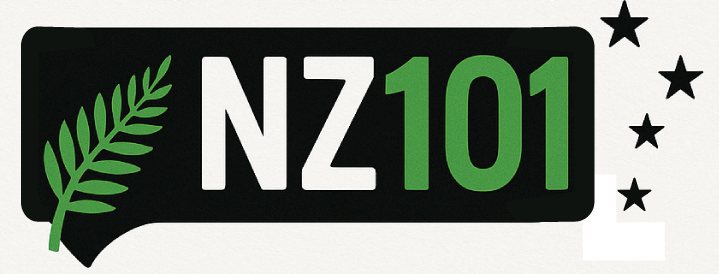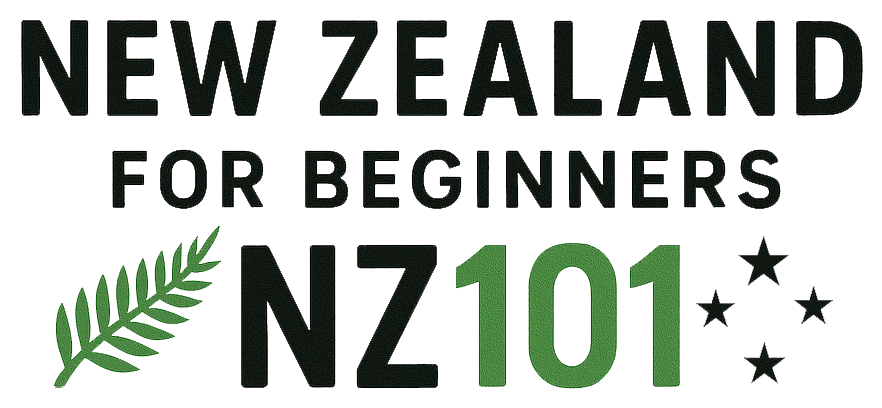Next week (15–21 June) is Volunteer Week in New Zealand, so no better time than now to write about the generosity of everyday Kiwis.
According to the Mayo Clinic, volunteering not only benefits the people you’re helping, but it also improves your own mental and physical health. When you volunteer, your brain releases feel-good hormones, making you feel happier and more relaxed. There are also physical benefits, such as lower blood pressure and a reduced risk of chronic illnesses.
New Zealanders have clearly done their research because they are among the most generous people in the world.
I am not making this up; the stats speak for themselves.
- In 2017, Stuff reported that ‘each year, individuals, trusts and charities give around $3 billion to New Zealand causes’.
- $288 billion was gifted in philanthropic grants between 2016 and 2022 (1News, 2022).
- New Zealand consistently ranks in the top 10 most generous countries globally. In the 2016 Charities Aid Foundation’s survey, New Zealand ranked 2nd, while in the 2023 World Giving Index, New Zealand ranked 10th.
- New Zealand has more than 27,000 registered charities, but there are even more charities that are not registered with the Charities Services.
- According to the Department of Internal Affairs, the charitable sector has an annual total income of $21 billion and is supported by 217,000 volunteers.
- According to the Op Shop Directory, as of June 2025, there are 654 registered op shops, but it is estimated that there are more than 1,000 op shops across New Zealand.
Each year, New Zealand’s volunteers contribute around 270 million hours to the community, providing approximately 67 per cent of the non-profit workforce and contributing about 2.3 per cent to New Zealand’s GDP (Goodhew, 2016).
In Volunteer Week, many employers give their staff the opportunity to spend one day volunteering for a charity of their choice. Notable companies that have done so in the past are Z Energy, Fonterra, PwC and MOTAT. There are many others; I’m just naming the few I’m aware of.
The theme for this year’s Volunteer Week is whiria te tangata – weaving the people together, highlighting the power of volunteering to connect communities.
Charities
Kiwis’ generosity is not the only reason why New Zealand has a high number of charities.
A robust legal framework provided by the Charities Act 2005 also makes it easier for organisations to register.
In addition, sadly, in the current cost-of-living crisis, there is also a high need for them in communities around the country.
There are thousands of amazing charities in New Zealand, all competing for donations from generous Kiwis, but here are my 6 favourite charities.
Hospice
I’m a bit biased because I volunteer at the local Harbour Hospice shop. Nevertheless, the Hospice charity delivers free palliative and end-of-life care for New Zealanders countrywide.
Each year hospice services throughout the country provide palliative care to over 10,000 people who die (Hospice New Zealand).
All hospices are managed at a local level. As such, Harbour Hospice provides free palliative care for families in my local community.
Less than half of its operating funds come from Health NZ, while the remainder is sourced by donations and the sale of second-hand goods in the Hospice shops.
I am proud of my humble contribution to this very necessary service to the community, and that’s why the Hospice Charity is top of my list.
City Mission
A few years ago, I was involved with Auckland City Mission when they organised a Christmas lunch for the homeless. It was a humbling experience I will never forget.
Auckland City Mission was established in 1920 in response to the devastation following World War I. More than 40 years ago, the first foodbank was established, and today, more than a century later, the City Mission provides free housing, food and a health service to the most vulnerable members of society.
Auckland City Mission is the most well-known City Mission in the country, but there are others that do equally great work in their communities.
Wellington: provides food parcels, social work, transitional housing and budgeting advice
Christchurch: offers emergency accommodation, food, medical services and counselling
Palmerston North: focuses on food bank services, budgeting advice and community meals
Invercargill: provides food, advocacy and support for vulnerable people in the region.
Smaller towns may not have City Missions, but they do offer community support services through local churches and community initiatives.
KidsCan
KidsCan supports children in need through schools and preschools. They provide food, jackets, shoes and health products to 60,000+ children in poverty in 1000+ schools.
Check out the KidsCan website for an overview of the service they deliver to make sure Kiwi kids in need can thrive and succeed.
Gumboot Friday
This one is close to my heart.
Gumboot Friday is a mental health initiative that aims to provide free counselling to young New Zealanders aged 25 and under. Donations are used to fund these counselling sessions.
A significant number of young people face waitlists or delays in accessing mental health support through traditional public channels, and Gumboot Friday seeks to plug that gap.

The charity was founded by Mike King in 2019, and it rapidly evolved into a nationwide programme.
In 2024, the government allocated $24 million in its budget to fund 15,000 free counselling sessions annually for young people.
However, a government watchdog found that proper process was not followed, and it was revealed that nearly 50% of all spending goes to non-counselling costs.
Regardless, access to mental health support through the public system is frustrating and complicated, and without Gumboot Friday, a lot of young people would go without the counselling service they need.
The charity is also well-supported by high-profile New Zealanders.
In 2023, eight New Zealanders ran, swam and biked from New Plymouth to parliament in Wellington to raise awareness of the mental health needs of young New Zealanders and raise funds for Gumboot Friday.
Although the event (Due Drop Challenge) had eight participants, all eyes were on the Famous Five:
- Mike King himself – founder of I Am Hope and Gumboot Friday
- Ian Jones – former All Black
- Rick Wells – triathlon world champion
- Richie Barnett – former NRL star
- Karim Rostami – refugee, polio survivor and Ironman.
The event raised approximately $135,000, enough money to fund 1,000 counselling sessions.
The event also sparked nationwide conversation around youth mental health, helping spread awareness alongside the funds raised.
St John

St John is New Zealand’s national ambulance service.
You may wonder why it is a charity. Well, I do too, so I did a bit of reading.
In 2023, more than 500,000 Kiwis relied on the ambulance service. Although St John receives some government funding, it also relies on 2500 volunteers, donations, fundraising and a part-charge for patients transported by ambulance.
St John is hopeful that by 2026, the government will fully fund its ambulance operations. But for now, it continues to rely on support from the public to fill the gap.
None of us ever want to dial 111, but if we do, it’s comforting to know help will be available.
That’s why St John is one of my favourite charities and one I happily support.
Red Cross
Red Cross needs no introduction.
New Zealand Red Cross focuses on preparing for and responding to disasters and emergencies, supporting refugees as they rebuild their lives and providing community services such as delivering Meals on Wheels.
Each year, more than 3000 volunteers deliver around 700,000 meals to people who can’t cook for themselves.
Red Cross also provides first-aid training to more than 70,000 people nationwide.
New Zealand Red Cross raises funds through its 50+ Red Cross shops and donations from the public.
Op shops
Op shops are ‘opportunity shops’ run by charitable organisations, and the profits help fund their services. They are very popular in New Zealand, and most places, from small towns to bigger cities, have a few of them.
I live in a small town of 13,000 people north of Auckland, and it has 7 op shops, all in one street. You see, these shops are not there to compete with each other. The money made from sales of pre-loved items in each one of these shops goes to good causes, so people are keen to support them. Having them all in one street encourages people to wander through all of them. It is also a great meeting place for locals.
Shopping in opportunity shops is almost like a hobby for New Zealanders. There is even a common verb for it.
What are you doing this weekend?
I’m going op shopping.
But as the cost of living bites, op shopping is no longer just a pastime; it is becoming a necessity for many.
Op shopping is also good for the environment. The recycling of clothes means that items that are disposed of do not end up in the landfill, and the money made from selling pre-loved clothes goes to good causes.
Around 180,000 tonnes of clothing and textile waste is disposed of in New Zealand each year (1News, 2024).
Op shops also attract antique collectors because they often stock unique and vintage items.
Sources used in addition to embedded links
Edens, J. (2017, July 10). New Zealanders give generously – almost $3 billion a year – but rarely talk about it. Stuff. https://www.stuff.co.nz/business/94560462/new-zealanders-give-generously–almost-3-billion-a-year–but-rarely-talk-about-it
Goodhew, J. (2016, February 14). New Zealand recognised as a nation of givers. https://www.beehive.govt.nz/release/new-zealand-recognised-nation-givers
NZ one of the world’s most generous countries, report shows (2022, September 5). 1News. https://www.1news.co.nz/2022/09/05/nz-one-of-the-worlds-most-generous-countries-report-shows/
Op shops busy as hard times bite (2024, January 12). 1News. https://www.1news.co.nz/2024/01/12/op-shops-busy-as-hard-times-bite/
Thoreson, A. (2023, August 1). Helping people, changing lives: 3 health benefits of volunteering. Mayo Clinic. https://www.mayoclinichealthsystem.org/hometown-health/speaking-of-health/3-health-benefits-of-volunteering



Pingback: Weekly Whirl #5 - New Zealand for Beginners
Pingback: Weekly Whirl #6 - Weekly summary of the not-too-serious NZ news